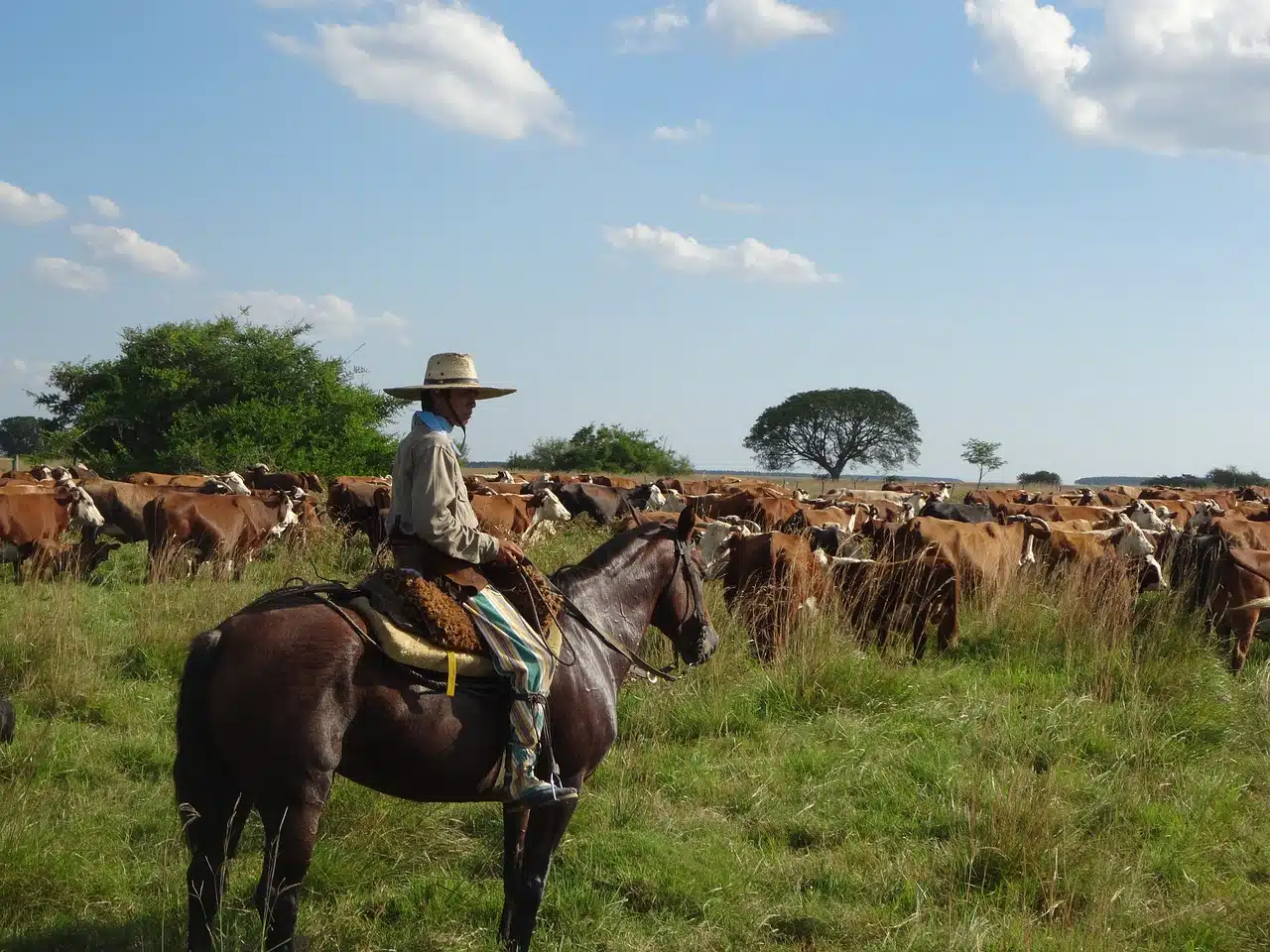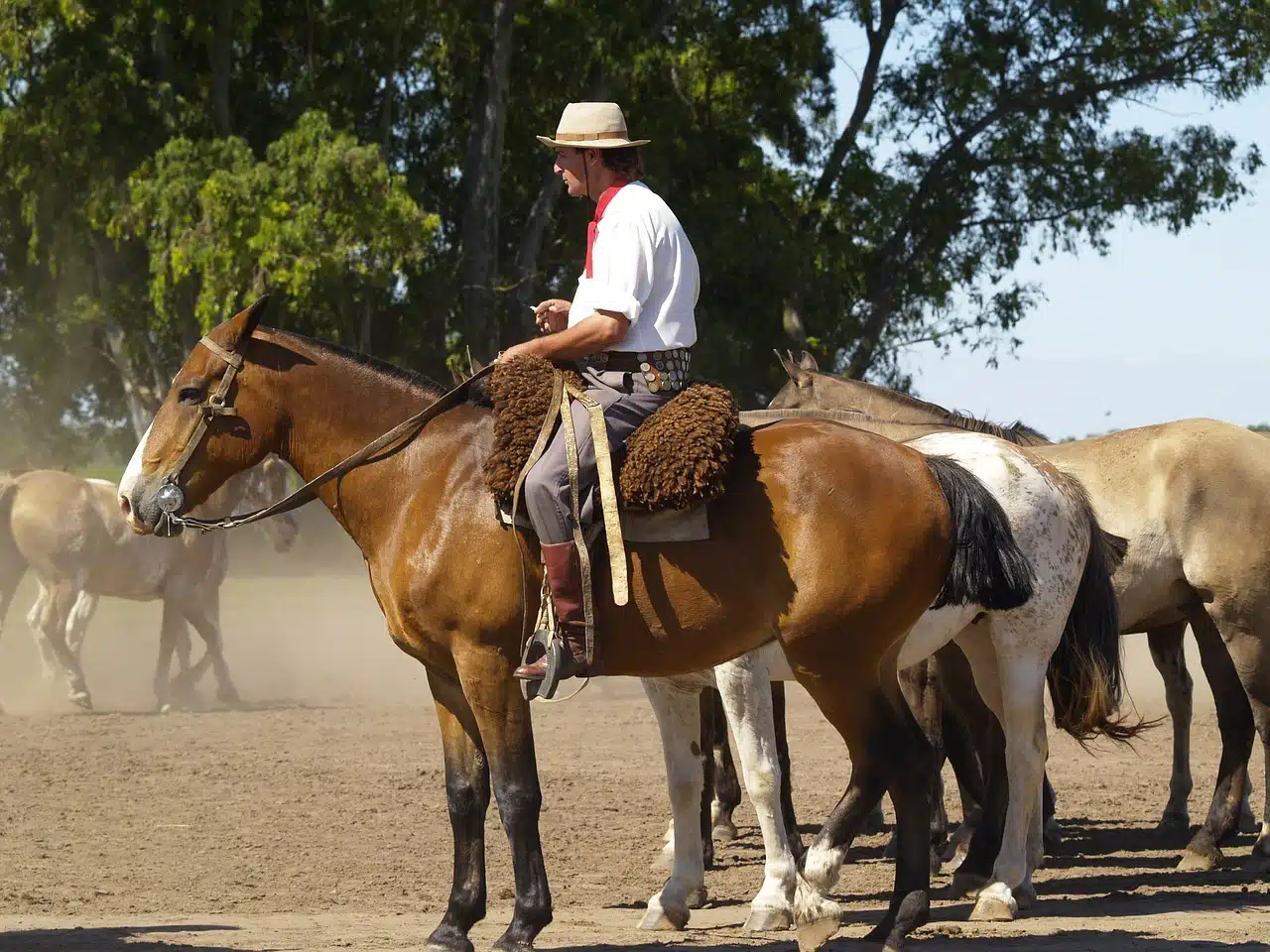
A gaucho is a peasant from Argentina, Uruguay or southern Brazil.
Gaucho is a term used in Argentina , Uruguay and southern Brazil to name a type of peasant . Gauchos are very skilled horsemen who are dedicated to rural work.
Although today it is used to refer to the employees of agricultural and livestock farms , in its origins the gauchos lived in a very different way. They were nomadic individuals, generally solitary, who earned their living by helping with the care of cattle and earning in exchange a place to sleep, food and some money.
The etymology of the word has very diverse roots, although most scholars agree that it possibly derives from the Quechua term huachu , which means "orphan" or "wanderer" . However, in Brazil it is mostly believed that it has its origin in the term gauderio , which was the way they called the vagabonds who lived in the immense expanses of countryside in Rio Grande do Sul . And, perhaps, the term is a fusion of both concepts, along with other terms related to the lives of these particular Latin American characters.
History of the gauchos
This way of calling rural workers, however, spread mostly in the 18th and 19th centuries , especially thanks to literature, where these characters began to appear starring in all kinds of stories. Time in which gaucho literature also emerged, which had as its main element the pride of this type of life and of these men.
The rise of modernity: the seizure of lands in the hands of large landowners and, above all, the invention of fences to delimit territories and organize livestock in the same place, led to the disappearance of the gaucho itself . And, starting in the 20th century , those men who defended the values of the ancient gauchos but who lacked their freedom were called of this world; that they were hired in a field , in which they spent a large part (if not all) of their lives. Nomadism was left behind and with it, the true identity of the gaucho: being free. Nowadays, someone who dresses in the clothing of the ancient nomads is called a gaucho; clothing that is considered traditional and is deeply rooted in the nationalism of countries such as Argentina and Uruguay .
The fundamental accessories of the gauchos' clothing were: pony boots, chiripá, beret or headband, boleadoras, lasso, guitar and the inevitable mate . The gauchos were also great payadores , capable of improvising recitations along with their guitar . In fact, they used to meet in the pulperías, where they danced, sang, drank wine and played trick or taba.

Gauchos are great horsemen.
The independence struggle
History is written by those who win, even if everyone loses. Such is the case of the essential place that these characters occupied in the history of Latin American countries. Many gauchos played leading roles in the struggles for the independence of these nations or in the civil conflicts of the region.
Some by their own decision and others (the vast majority) because they were forced by the government in power, fought in wars that did not even represent them. And, those who did not agree to "serve the cause" were persecuted and, if necessary, killed. Many of them were forced to fight with aboriginal communities that they respected , in order not to lose their own lives and condemned to loneliness and absolute sadness. And, after having done a lot for that "freedom" and for that little-necessary war, they were left to their own devices: tired, sore, and absolutely miserable.
Finally, it is worth mentioning that certain authors such as José Hernández, Ricardo Güiraldes, Leopoldo Lugones and Victoria Ocampo created various gaucho characters who would become true icons for lovers of their culture . Among the most famous gauchesco fictional characters are Martín Fierro (created by José Hernández ) and "Don Segundo Sombra" (creation of Ricardo Güiraldes ) .
